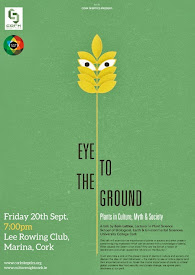According to a couple of recent news stories, organic food is no better for you or the environment than conventionally farmed food. While growers and consumers would do well to take a closer look at the findings before making up their minds, the organic sector needs to turn to science if it is to remain relevant.
The big organic story of the week is a Stanford University meta-analysis which has variously been reported as showing that "
Organic food no healthier" (Irish Times), "
Why organic food may not be healthier for you" (NPR), and "
Organic food is 'not healthier'" (Telegraph).
According to the study published in
Annals of Internal Medicine, there is little evidence from 237 existing studies that suggest organic foods are more nutritious than conventional alternatives. The authors do acknowledge that consumption of organic foods
"can reduce the risk of pesticide exposure". Clearly the healthiness of a foodstuff is more than just its nutritional value, so the reduced pesticide use on organic foodstuffs is worth noting.
“Some believe that organic food is always healthier and more nutritious,” said Crystal Smith-Spangler, co-author of the report.
“We were a little surprised that we didn’t find that.” Perhaps they shouldn't have been given that
a 2009 analysis of 50-years of research showed similar results.
Some commentators have mentioned that they don't purchase organic because it is better for them, they shop organic because it is good for the environment. It seems, however, that this claim may not live up to further scrutiny.
The second, and less widely reported organic story of the week is a study by Oxford University scientists which suggests that while organic farming is good for biodiversity, it does not necessarily have a lower impact on the environment than conventional food production.
The Oxford study, published in the
Journal of Environmental Management, is a meta-analysis of 71 peer-reviewed studies conducted in Europe. The authors report that
"whilst organic farming almost always supports more biodiversity and generally has a positive wider environmental impact per unit of land, it does not necessarily have a positive impact per unit of production."
The study showed that organic production generally needed less energy, but more land than the same amount of conventional produce. While biodiversity was 30% higher on organic farms, the production of organic milk, cereals and pork all generated more greenhouse gases than the conventional alternative.
"Many people think that organic farming has intrinsically lower environmental impacts than conventional farming but the published literature tells us this is not the case," said Dr Hanna Tuomisto, who led the research at Oxford University's Wildlife Conservation Research Unit (WildCRU).
"Whilst some organic farming practices do have less environmental impact than conventional ones, the published evidence suggests that others are actually worse for some aspects of the environment. People need to realise that an "organic" label is not a straightforward guarantee of the most environmentally-friendly product".
an organic stamp should not be seen as the pinnacle of achievement in terms of sustainable food production What these two studies clearly show is that an organic stamp should not be seen as the pinnacle of achievement in terms of sustainable food production. On the other hand there are clearly some advantages of growing organically - increased biodiversity on farms and a decreased use and exposure to pesticides being just two highlighted in these studies. While these are positives, as conventional agriculture slowly moves away from the worst excesses of pesticide use, the importance of purely organic production may wane.
I've long argued for a third way - an agricultural system based on science where what works and is safe from all systems of agriculture can be used together to get the best results for growers, consumers and the environment.
If organic farming is to remain relevant in an era of growing food insecurity, it must be based on rigorous science and clear evidence. The organic sector must also begin to pick its battles. Organic is not the answer to all of the worlds problems. It does however have real contributions to make in terms of biodiversity and sustainable pest management.





























